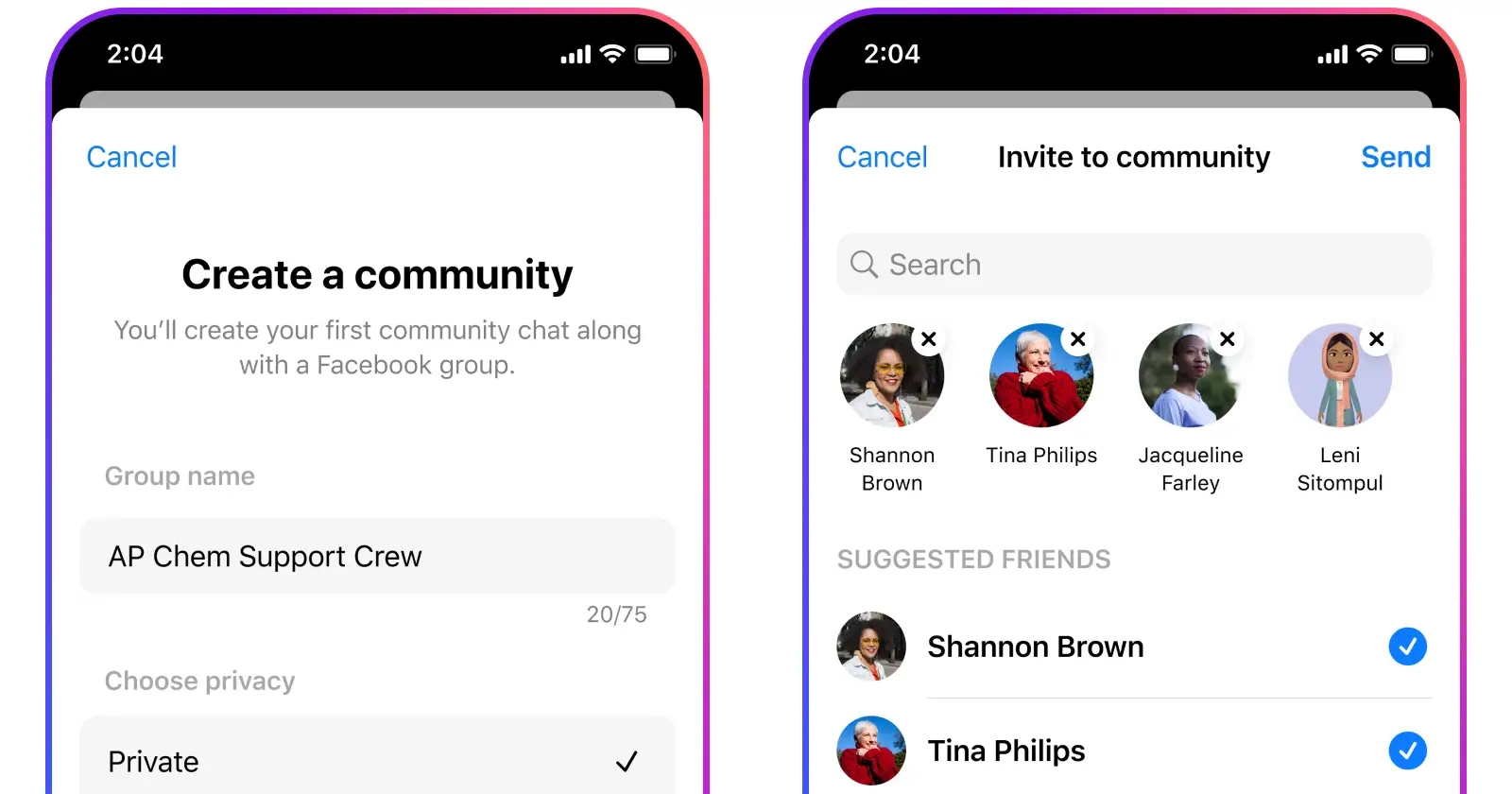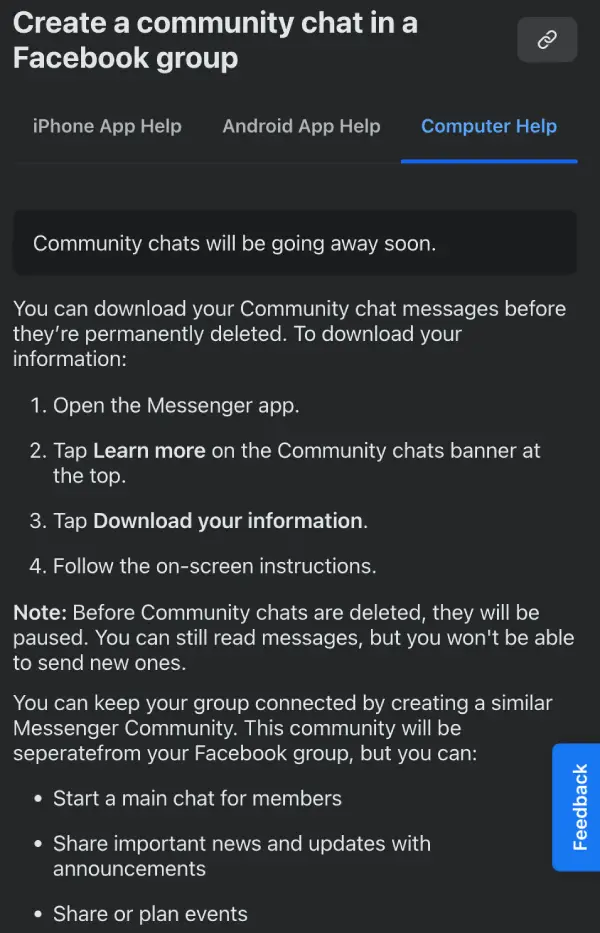If you’ve been using Facebook groups to stay connected with your local book club, gaming buddies, or neighborhood watch, you might have noticed something unsettling recently. Facebook has quietly started rolling out notifications that community chats will be disappearing from the platform.
Reports started surfacing online when group admins began receiving pop-up notifications in Messenger warning them about the impending change. At first, many thought it was a glitch or some kind of technical error. After all, there wasn’t any big official announcement from Meta about shutting down a feature that thousands of communities rely on daily.
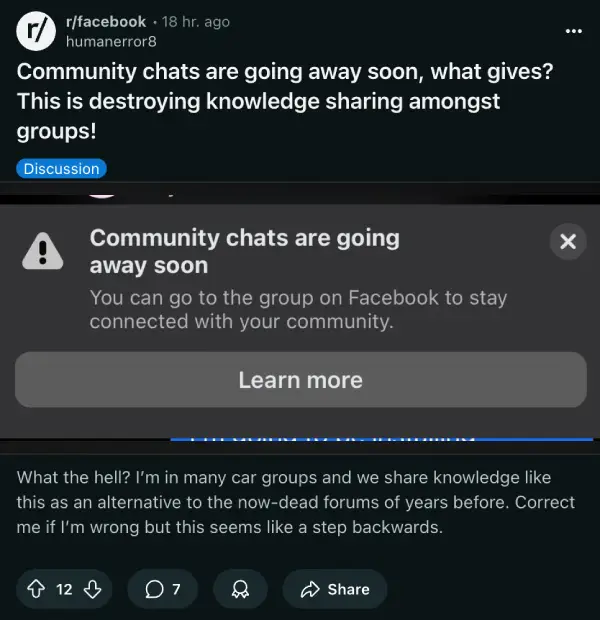
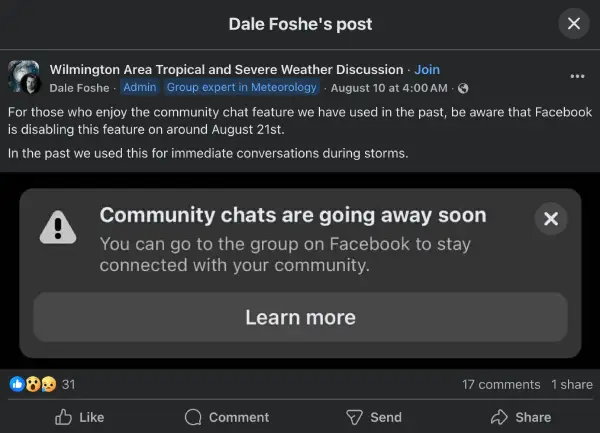
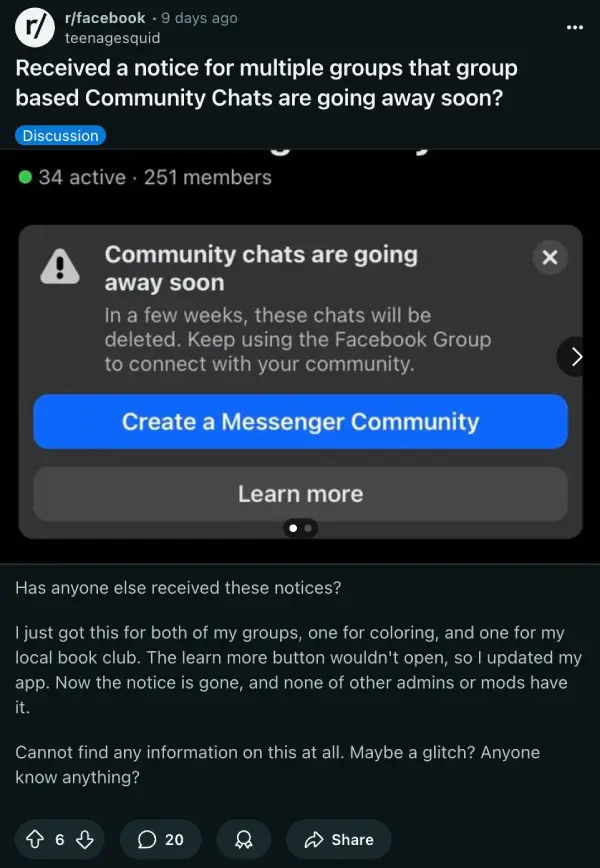
But it’s real. Facebook has updated its official help page to confirm that “Community chats will be going away soon”. The company isn’t providing a specific timeline, which has left many group administrators scrambling to figure out what comes next.
Let’s back up for a moment. Community chats were introduced by Meta in 2022 as a way to bridge Facebook Groups with Messenger. The idea was pretty smart: instead of having all group discussions happen through posts and comments, members could jump into real-time conversations about specific topics. Think of it like having multiple chat rooms within your Facebook group, where up to 250 people could talk about everything from coordinating events to sharing quick updates.
So why is Facebook pulling the plug? That’s the bit that’s a bit unclear at the moment. Facebook hasn’t revealed exactly why it’s killing off the feature, but it’s likely because Meta wants chats to take place on the Messenger side of things, at least that’s what I could think of. Plus, some users speculate that it could be due to all the spam going around in groups. But hey, your guess is as good as any at the moment.
Before these chats disappear completely, Facebook is giving users a chance to save their conversations. You can download your community chat messages through the Messenger app by tapping “Learn more” on the notification banner and following the download instructions. The process involves going through Facebook’s standard data export feature, which can take anywhere from a few minutes to several hours depending on how much chat history you have.
As I mentioned above, the company is pushing users toward “Messenger Communities” as an alternative. These are standalone chat spaces that can accommodate up to 5,000 members and work independently from Facebook groups. You can create multiple topic-based chats, share announcements, and organize events, much like the old community chats.
The catch? Messenger Communities exist separately from your Facebook group. So if you had a book club group where members could seamlessly jump between group posts and chat conversations, you’ll now need to manage two different spaces. It’s not exactly seamless integration.
Beyond that, plenty of users are eyeing outside options to fill the void. Discord pops up a lot in discussions – it’s got voice channels, file sharing, and bots for fun extras, making it a solid pick for gaming crews or creative circles. Signal or Telegram are favorites for privacy-focused chats, while some are just sticking with basic Messenger groups or even old-school email lists.
The transition period seems to be happening gradually. Some group admins are seeing the notifications now, while others haven’t received any alerts yet. Before the chats are completely deleted, Facebook says they’ll be “paused,” meaning you can read old messages but won’t be able to send new ones.
If you’re part of a Facebook group that uses community chats, now’s the time to start planning your next move. Download those important conversations while you still can, and consider whether a Messenger Community might work for your group’s needs. Because ready or not, this particular Facebook experiment is coming to an end.
TechIssuesToday primarily focuses on publishing 'breaking' or 'exclusive' tech news. This means, we are usually the first news website on the whole Internet to highlight the topics we cover daily. So far, our stories have been picked up by many mainstream technology publications like The Verge, Macrumors, Forbes, etc. To know more, head here.

